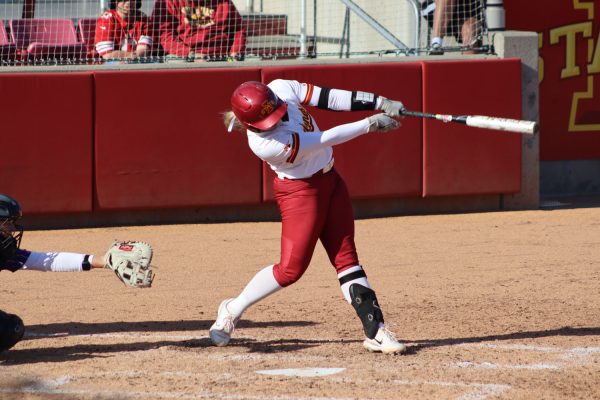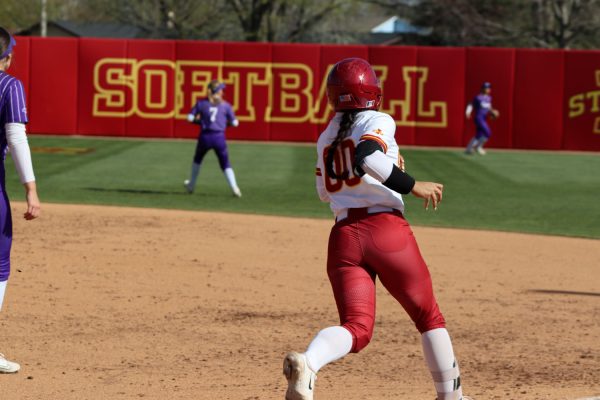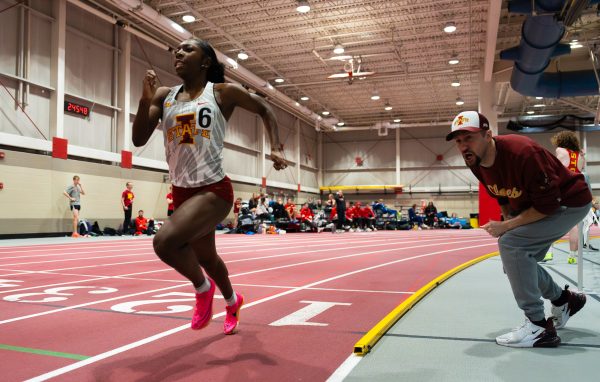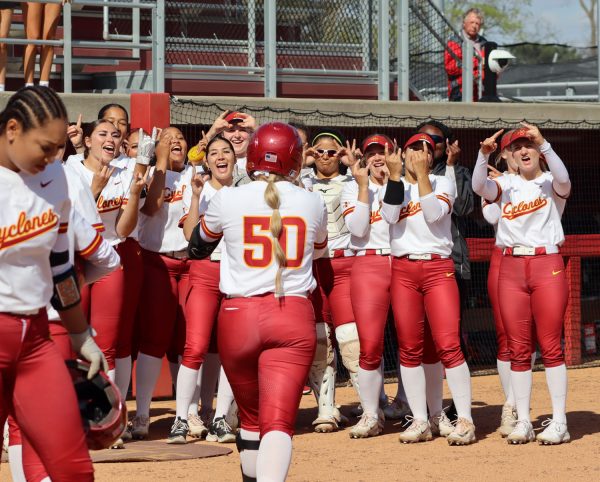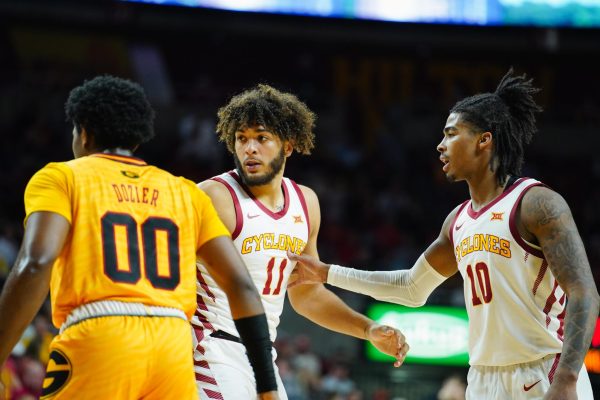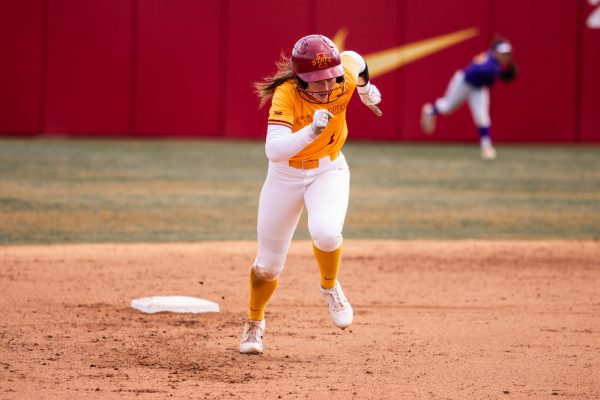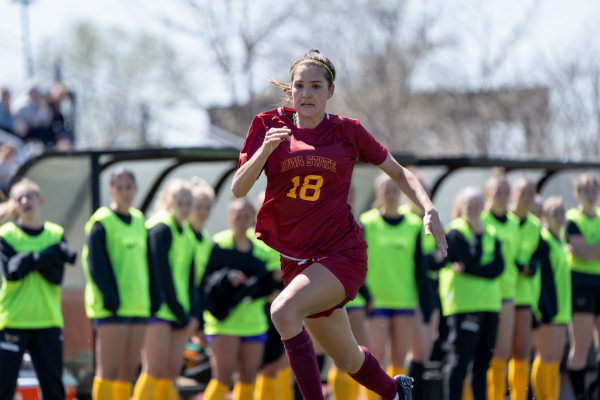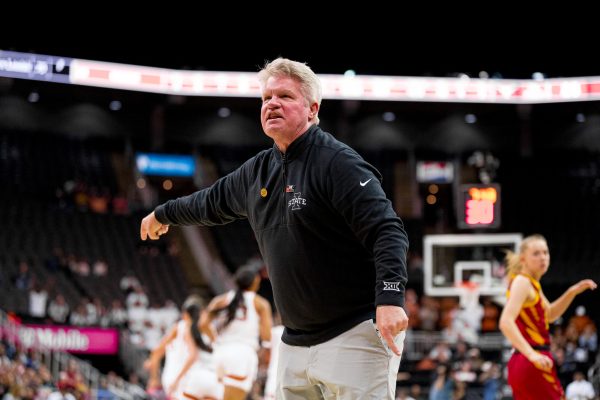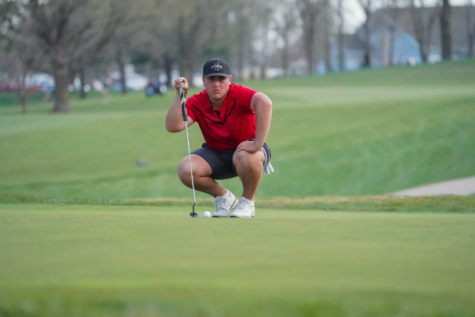Multifaceted Minatta brings elevated expectations
April 29, 2012
When assistant coach Ben Madsen left the ISU soccer team in February, head coach Wendy Dillinger was left with no one to help her with coaching duties besides her husband, who acts as a volunteer.
Madsen had been with the team for the past four seasons, but decided he wanted to move to a new location, and ISU midfielder Meredith Skitt said the move was tough.
To fill the void, Dillinger chose former Fort Collins (Colo.) Soccer Club coach Tony Minatta, who carries a mountain of coaching experience. Skitt said Dillinger made a good choice.
“Losing Ben was definitely not easy, but I don’t think we could have picked a better coach to step in and fill his role,” Skitt said.
Fans will have to wait until August to see if Minatta can help to improve the team’s conference record from 2-6 last year, but the newcomer believes he has the tools to make it happen.
“I guess I told Wendy this in my interview, [but] I hate losing more than I like winning,” Minatta said. “But I bring a lot of diversity and background in training and things like that, so I can offer maybe a fresh look at something they’ve been working on a lot, maybe a different way to do it so it’s not as tedious.”
The Minatta file
The relationship between Minatta and Iowa State goes far beyond his initial interview with Dillinger. The former Marine sergeant has been on the club soccer scene for a while and has known Dillinger for years.
As a coach with the Fort Collins Soccer Club from 2005-2011, Minatta sent nearly 40 players to NCAA teams. Current Cyclones Jessica Stewart and Susie Potterveld are two who made it to Iowa State.
Minatta built many successful and championship teams while in Fort Collins, so it might come as a surprise that he left it all behind. He said in club, you don’t get to pick the players you want to coach, but the ability to do so attracted him to the collegiate level.
“In this environment, you get to go out and recruit the kids you want to coach and you get to coach your team,” Minatta said. “You don’t get a team to a certain level and then be told you have to leave that team and then go coach another team.”
Getting the job
Once Madsen left the team for a similar position on Auburn’s coaching staff, Dillinger began interviewing a few candidates over the phone before the plans took a sudden turn.
“[Jessica Stewart] actually asked if we filled the position yet and I told her no, and she said Tony was interested,” Dillinger said.
Dillinger began evaluating the situation and the possible new hire.
She looked at Minatta’s style of play, how he trains, his philosophy of the game and considered how pleased she’s been with Stewart and Potterveld as well.
“The more we talked to Tony and kind of looked at the situation, it just made sense,” Dillinger said.
What he brings to the program
In addition to his connections to club coaches and teams around the country for recruiting, Minatta also brings coaching expertise that isn’t commonly found.
Minatta has worked with former U.S. National Team coach Anson Dorrance and is the bearer of the highest coaching licensing available. Bringing in that experience is something Iowa State can use to its advantage for a team that is striving for not only a Big 12 but NCAA tournament bid as well.
“To bring that expertise in terms of the game and teaching the game and developing players I think is invaluable,” Dillinger said.
Minatta said coaching the Region IV Olympic Development Program helped him learn how to coach the best athletes all on one team and adapt to a new environment. Gaining players’ respect and getting them to buy into a philosophy are important, but Minatta said it’s no different than what he’s done countless times before.
“The one thing I’m confident in is my ability to train and things like that, so I’m not nervous when I step into a situation like that because I’m used to doing it,” Minatta said.
Just because he is the new guy in town doesn’t mean he doesn’t expect the best for his new team.
He believes the team has what it takes to make it to the next level; it just comes down to making plays on the field.
“The talent is all here. There’s a commitment from the players that they want to make it, they want that challenge, they want to make it to the tournament,” Minatta said. “So I think it’s all there for us to be able to do it, it’s just a matter of the kids not going out and executing and us making sure that we do our job in pushing the right buttons to get them there.”
So far, so good
It has been two months since Minatta was hired, but he got down to business from the get-go.
Skitt said he ran a few practices right away to get a feel for the players he would be working with for the foreseeable future. Because he has been all over the globe working with some of the best in the business, Minatta wasted no time in sharing some of his drills with the team, which Skitt said showed areas for improvement.
“He tells us about his different experiences with other national teams and brings different drills that he’s seen the elite teams doing and we try to replicate them,” Skitt said. “Obviously it’s not as pretty, but I think we’ll get there eventually with his help.”






